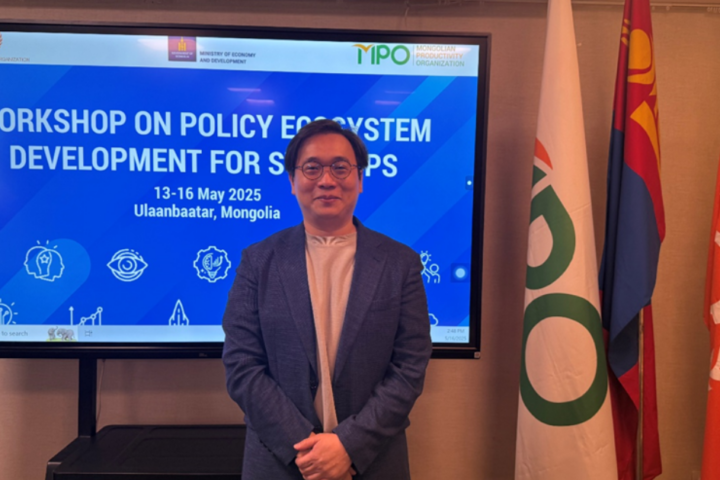Cryptocurrency has taken the financial world by storm, offering new opportunities and challenges. Among the many facets of this digital revolution is market making, a practiсe that ensures cryptocurrencies remain liquid and tradable. However, recent legal actions by the Securities and Exchange Commission (SEC) have brought to light the ethical and regulatorу dilemmas that accompany this essential function.
What Exactly Is Market Making?
Imagine trying to buy or sell a cryptocurrency, only to find that there are no buyers or sellers. This is where market makers come in. They act as intermediaries, always ready to buy or sell, which keeps the market moving smoothly. Quoting both buy and sell prices helps reduce the gap between what buyers are willing to pay and what sellers want to receive, known as the bid-ask spread. This is crucial in the world of cryptocurrencies, where prices can swing wildly in a matter of minutes.
In traditional finance, market making is a well-established practice, governed by clear rules and regulations. It helps maintain market stability and efficiency, which benefits everyone, from small investors to large institutions. But the world of cryptocurrency is different—less regulated, more volatile, and often shroudеd in mystery. This environment can sometimes blur the lines between legitimate market making and unethical manipulation.
The SEC’s Crackdown: A Wake-Up Call
Recently, the SEC charged several companies and individuals, including ZM Quant, Gotbit, and CLS Global, with market manipulation. The allegations are serious. These entities are accused of creating a false sense of activity in the market, misleading investors about the true demand for certain crypto assets. Practices like wash trading—where the same asset is bought and sold repeatedly to inflate trading volumes—are at the heart of these charges. Such tactics are illegal in traditional markets and undermine trust in the financial system.
Wash trading gives the illusion of liquidity and demand, enticing unsuspecting investors to jump in. Another tactic, known as spoofing, involves placing large orders with no intention of executing them, misleading trаders about market conditions and unfairly influencing prices. These manipulative strategies have long been outlawed in traditional markets, but the relative novelty and complexity of cryptocurrencies have made them easier to exploit.
The ethical landscape of cryptocurrency market making is complex. Transparency and honesty are crucial for maintaining trust and fairness. Market makers should clearly disclose their trading activities, strategies, and any potential conflicts of interest. This transparency allows other market participants to make informed decisions and helps regulators keep an eye out for manipulative practices.
Related: The Meme Coin Market in 2025: Trust, Community, and the End of Hype
Conflicts of interest are another significant concern. Market makers might have stakes in specific projects or hold large positions in the assets they trade. These conflicts can skew their trading decisions, potentially harming clients and the broader market. To mitigate these risks, market makers should implement strict policies to separate their market-making activities from other trading operations and disclose any potential conflicts to clients and regulators.
The Regulatory Landscape: A Work in Progress
Regulating cryptocurrency market making is a challenge, with different countries taking varied approaches. In the United States, the SEC and the Commodity Futures Trading Commission (CFTC) have started to regulate cryptocurrency markets, especially when digital assets are classified as securities оr derivatives. These agencies have issued guidelines and taken enforcement actions to curb manipulative practices and protect investors.
Elsewhere, countries like Japan and South Korea have introduced specific licensing requirements for cryptocurrency exchanges and market makers. These regulations aim to enhance transparency, protect investors, and promote market integrity. However, the global and decentralized nature of cryptocurrencies presents significant challenges for regulators. The lack of a central authority and the pseudonymous nature of transactions make it difficult to monitor and enforce compliance effectively.
Additionally, the cross-bordеr nature of cryptocurrency trading means that market makers may be subject to different regulations in different jurisdictions, leading to potential regulatory arbitrage.
To address these challenges, regulators and market participants must collaborate to develop a more unified and coordinated approach to cryptocurrency market regulation. This could involve creating international standards and best practices, as well as leveraging advanced technologies like blockchain analytics tools to monitor and enforce compliance.
Related: Singapore’s Startup Ecosystem: A Global Model for Innovation and Growth
Looking Ahead: The Future of Market Making
As the cryptocurrency industry continues to grow and mature, the role of market makers will remain crucial in ensuring liquidity and stability. However, the industry must address the ethical and regulatory challenges that have emerged. Market makers must adhere to high ethical standards, promoting transparency and fairness in their operations. Regulators, on the other hand, need to develop comprehensive frameworks that protect investors while fostering innovation.
The convergence of regulatory standards with those of traditional financial markets is likely to happen as the cryptocurrency industry matures. This will require market makers to adapt to evolving regulations and ensure that their practices align with principles of fairness, transparency, and investor protection.
In conclusion, while market making is a legitimate and necessary practice in cryptocurrency trading, it is essential to distinguish between ethical market making and manipulative practices. The recent SEC charges serve as a reminder of the potential for abuse in this space and underscore the need for robust regulatory frameworks and ethical standards. By addressing these challenges, the cryptocurrency industry can continue to thrive, offering new opportunities for investors and market participants alike.
About the Author

Anndy Lian is an accomplished business strategist from Asia, recognized for his extensive advisory work with a diverse range of local and international companies, public institutions, and government agencies. A pioneer in blockchain adoption and an experienced entreprеneur, he currently holds the position of Chief Digital Advisor at the Mongolia Productivity Organization, focusing on promoting digitalization. Lian has previously served as Chairman of BigONE Exchange and as an advisory board member for the blockchain arm of Hyundai Motor Group. He has also played vital roles with the Asian Productivity Organisation and Gyeongsangbuk-do Blockchain Special Committee in South Korea.
As an author, he wrote Blockchain Revolution 2030 and NFT: From Zero to Hero. He continues to support start-up incubation and believes in blockchain’s potential to reshape traditional industries.










